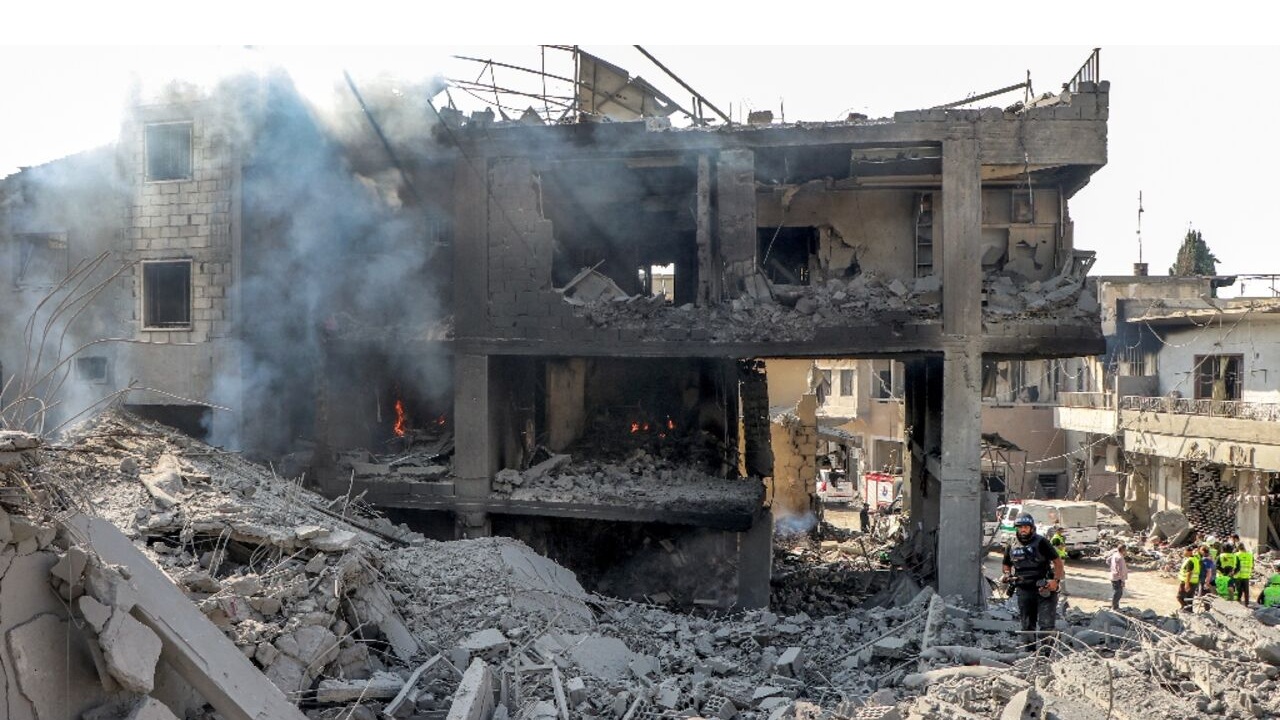Israeli warplanes launched a series of strikes deep into Lebanon on Tuesday, targeting what officials described as military infrastructure used by Hezbollah’s elite Radwan unit.
The goal of the operation, according to the Israel Defense Forces (IDF), was to prevent the group from regrouping and rearming after months of heightened tension and sporadic conflict.
Lebanon’s state-run National News Agency reported that the strikes killed 12 people, including seven Syrian nationals, and injured at least eight others.
One of the air raids reportedly hit a camp for displaced Syrians in the Wadi Fara region of the northern Beqaa Valley, a stronghold of Hezbollah activity.
According to the IDF, the targeted sites were military facilities used for training operatives and storing weapons for the Radwan force — Hezbollah’s elite unit known for planning cross-border attacks.
“These camps are utilized by Hezbollah for training and preparing attacks on Israeli forces and civilians,” an IDF statement said.
The statement also described the weapons stored at the sites as a “clear violation” of long-standing security arrangements between Israel and Lebanon, warning they pose a significant threat to Israeli security.
Defense Minister Yoav Gallant emphasized the significance of the strike, stating it served as a “direct warning” to Hezbollah and the Lebanese government, which he said bears responsibility for ensuring security along the border.
“We will act decisively against any attempt by Hezbollah to restore its capabilities,” he said.
“Every terrorist will be hit, and any rebuilding effort will be stopped with maximum force.”
Israel has conducted numerous air raids targeting Hezbollah positions in southern Lebanon, particularly since a ceasefire was reached in November following weeks of conflict.
On the other hand, strikes deeper into the Lebanese interior, such as those in the Beqaa Valley, remain relatively rare.
Tuesday’s operation marked a notable escalation.
The Lebanese government has yet to issue an official response.
However, its national media acknowledged the strikes, stating Israeli aircraft had conducted a raid southeast of Baalbek, the largest city in the region.
The Beqaa Valley, with its rugged terrain and strategic proximity to the Syrian border, has long served as a Hezbollah stronghold and logistical hub.
Prior to the collapse of the Syrian regime led by Bashar al-Assad late last year, the region was a key corridor for smuggling weapons from Syria into Lebanon.
Israel has accused the group of continuing to use this route to stockpile advanced arms.
Just days earlier, Israeli forces reportedly raided former Syrian military facilities, seizing around three tons of weaponry that Israeli officials claimed were intended for Hezbollah.
The IDF has accused the group of planning a large-scale invasion of northern Israel through its Radwan unit, a plan that was allegedly shelved after the October 7, 2023, Hamas assault on southern Israel reignited broader regional hostilities.
Following that attack, Hezbollah began launching near-daily missile and drone strikes on northern Israeli towns in solidarity with Hamas.
The attacks forced approximately 60,000 Israeli residents to evacuate from border communities.
In response, Israel ramped up military action in southern Lebanon beginning in September, which led to two months of open combat.
During that period, Israel claims to have dealt serious damage to Hezbollah’s leadership and weapons stockpiles.
Although a ceasefire was brokered in November, Israeli airstrikes have continued, particularly when intelligence suggests an imminent threat.
Under the ceasefire terms, Israel is allowed to act unilaterally against direct dangers but must refer less urgent matters to an international oversight committee.
Currently, Hezbollah is facing mounting domestic pressure from Lebanon’s Western-backed government, which is urging the group to disarm as part of a potential broader arrangement.
This plan could include a halt to Israeli airstrikes and a withdrawal of Israeli forces from contested areas near the border.
As tensions remain high, Tuesday’s deep-strike operation signals Israel’s intent to maintain pressure on Hezbollah, thwart its resurgence, and deter further cross-border aggression,
This is even if that means escalating operations beyond the traditional southern front.







